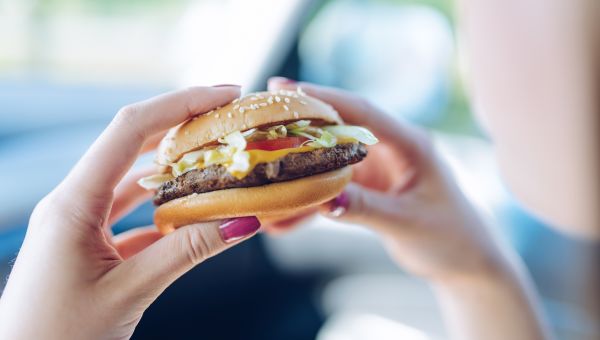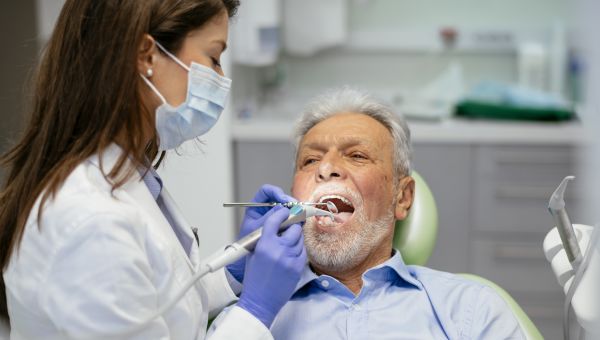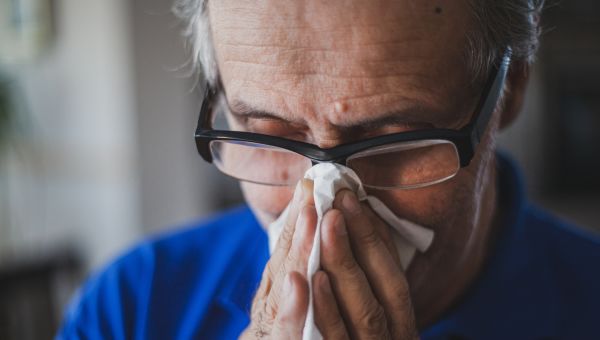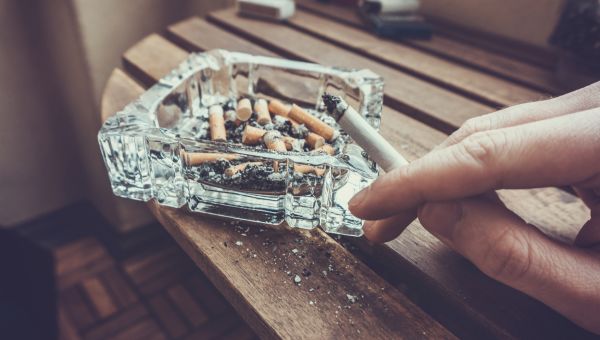8 things your breath could reveal about your health
Stop throwing mints at the problem and find out what's really causing your bad breath.
Updated on December 11, 2024

Your breath can reveal a lot about your health status. In fact, practitioners of traditional Chinese medicine have used the smell of people’s breath to help make medical diagnoses for centuries. Dogs can even be trained to detect cancer based on the way someone's breath smells.
Here are eight things your breath can reveal, plus ways to get help for common bad breath issues.

Your oral hygiene needs help
Most often, bad breath comes from debris that builds up in your mouth. It can feel—and smell—much cleaner if you make just a few easy oral hygiene tweaks:
- Sweep the gunk from your tongue with a tongue cleaner.
- Stick out your tongue while gargling to get mouthwash farther back in your throat.
The American Dental Association (ADA) also recommends flossing daily. While more research is needed to establish a link between flossing and cavity prevention, it can help remove sticky, smelly plaque from between your teeth. Done regularly along with toothbrushing, some studies suggest flossing may lower the risk of gum inflammation, tooth decay, and gum disease, as well.

Your diet may need some changes
Certain foods like garlic and onions have long been associated with stinky breath. Garlic odor is especially notorious because it sticks around even after brushing. How? It circulates through your system after digestion and is exhaled through your lungs. So, steer clear of clingy garlic the night before your next big interview.
Over the longer term, fast foods and processed meals may also lead to bad breath. Some research suggests it’s partly because an unhealthy diet contributes to a imbalance of microorganisms in the mouth and gastrointestinal tract.

You skip the dentist
Bad breath can signal conditions like gingivitis and tooth decay, which require professional attention. Help avoid tooth decay by seeing a dentist at least every six months for a checkup and cleaning.
Dental devices can affect your breath when food particles get lodged underneath them, too. If you wear dentures, remove and clean them nightly. Then, brush your mouth and gums thoroughly to remove germs and promote circulation. Be sure to include your tongue and the roof of your mouth. Also, dentures should fit snugly enough to eat crisp produce with ease—if they don’t, see your dentist to keep friction-related sores from developing.

You have dry mouth
Breath tends to smell worse when your mouth is dry, since saliva normally cleans away food particles. Dry mouth can come from certain medications, illnesses, or mouth breathing.
Increasing the flow of saliva can help wash away small food debris and reduce acids in the mouth, and add calcium and phosphate, which can strengthen tooth enamel. Here are some ways to increase the saliva in your mouth.
- Suck on sugar-free candies, but choose ones with malic acid, which stimulates saliva production.
- Chew sugar-free gum for 20 minutes after eating a meal.
- Snack on healthy foods that require a lot of chewing, like apples and carrots.
- Sip water or sugar-free drinks like iced tea to keep your mouth moist. Swishing and spitting works, too. Be careful with diet sodas. While it’s true they don’t contain sugar, they are still associated with dental erosion.
- Limit or avoid drying, acidic substances like coffee and alcohol.
If you're still feeling dry, consider saliva replacement products like Biotene, which you can find at the pharmacy or grocery store. You may want to consider a humidifier, too. It can add moisture to the air and keep your airways and your mouth from drying out.

Your allergies are acting up
Allergies can cause postnasal drip, the dripping of mucus from your nose down into the back of your throat. Mucus then causes bad breath when it lands on your tongue and mixes with mouth bacteria.
It’s important to treat the cause of your postnasal drip. If it’s allergies, ask your healthcare provider (HCP) if medications like antihistamines, decongestants, or prescription nasal sprays could help get your symptoms under control.
It’s also important to drink plenty of water since fluids loosen mucus and can keep it from lodging in your throat. Nasal irrigation kits and saline sprays can moisten and clear your nasal passages, as well.

You have heartburn
If you get occasional heartburn, it's common to feel self-conscious about your breath after burping. It’s rare for bad breath to actually come from your gut, though, since the muscular flap (sphincter) at the top of your esophagus is usually closed. However, chronic heartburn may result in bad breath.
Another possible factor? The stomach bacteria H. pylori. Research has found strong links between this germ and bad breath. Talk with your HCP about getting tested.

You smoke
All forms of tobacco cause foul breath in multiple ways. Smoking can:
- Dry out your mouth and leave an odor that’s difficult to shake
- Irritate your gums and lead to oral health issues
- Disrupt the microbiome of the mouth
- Impair the nose’s ability to clear mucus
Research has also suggested that the oral hygiene habits of heavy smokers tend to be worse than those of nonsmokers.
In addition to bad breath, tobacco yellows your teeth and raises your risk of mouth cancer and gum disease. The best remedy is to quit smoking.

You might have a more serious medical condition
Sometimes, the smell of your breath can signal a more serious illness. There are many conditions that lead to changes in breath odor, including kidney failure, liver failure, and certain cancers, such as stomach and lung cancer.
One example is the fruity smell on the breath of people with diabetic ketoacidosis (DKA). This complication of diabetes can happen during periods of stress, illness, and severe hunger. If you’re living with diabetes, it’s important to know the risk factors and symptoms of DKA since it can be life-threatening.

The Hong Kong Polytechnic University. Four Diagnostic Methods. Page accessed October 25, 2024.
Pellin MA, Malone LA, et al. The use of sniffer dogs for early detection of cancer: a One Health approach. Am J Vet Res. 2023;85(1):ajvr.23.10.0222. Published 2023 Nov 11.
American Dental Association. Bad Breath: 6 Causes (and 6 Solutions). Page accessed October 25, 2024.
American Dental Association. Floss/Interdental Cleaners. Page last updated September 21, 2021.
Shamsoddin E. Dental floss as an adjuvant of the toothbrush helps gingival health. Evid Based Dent. 2022;23(3):94-96.
Li Z, Li J, et al. Halitosis: etiology, prevention, and the role of microbiota. Clin Oral Investig. 2023;27(11):6383-6393.
Mayo Clinic. Bad Breath. Page last updated December 21, 2023.
American Dental Association. Dentures. Page accessed October 25, 2024.
Mayo Clinic. Dry mouth treatment: Tips for controlling dry mouth. Page last updated May 27, 2023.
American Dental Association. Chewing Gum. Page accessed October 25, 2024.
American Dental Association. The Truth About Sugary Drinks and Your Smile. Page accessed October 25, 2024.
Escobar Gil T, Laverde Gil J. Artificially Sweetened Beverages Beyond the Metabolic Risks: A Systematic Review of the Literature. Cureus. 2023;15(1):e33231. Published 2023 Jan 1.
Cleveland Clinic. Postnasal Drip. Page last reviewed May 19, 2022.
Cleveland Clinic. Heartburn. Page last reviewed January 19, 2023.
Poniewierka E, Pleskacz M, et al. Halitosis as a symptom of gastroenterological diseases. Prz Gastroenterol. 2022;17(1):17-20.
Johns Hopkins Medicine. Halitosis (Bad Breath). Page accessed October 25, 2024.
Kauss AR, Antunes M, et al. Influence of tobacco smoking on the development of halitosis. Toxicol Rep. 2022;9:316-322. Published 2022 Mar 6.
Centers for Disease Control and Prevention. About Diabetic Ketoacidosis. Page last updated May 15, 2024.
More On


video

article

slideshow


video


video
